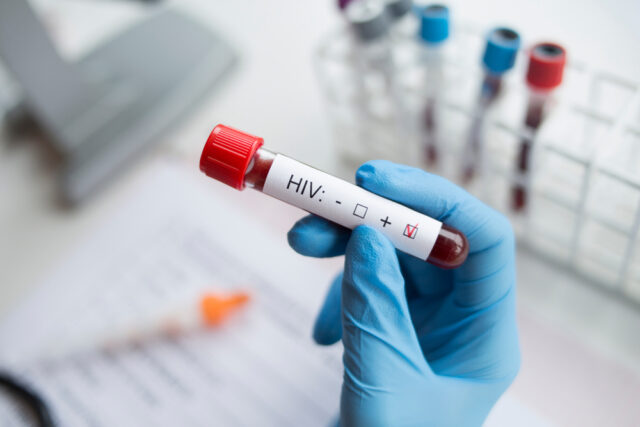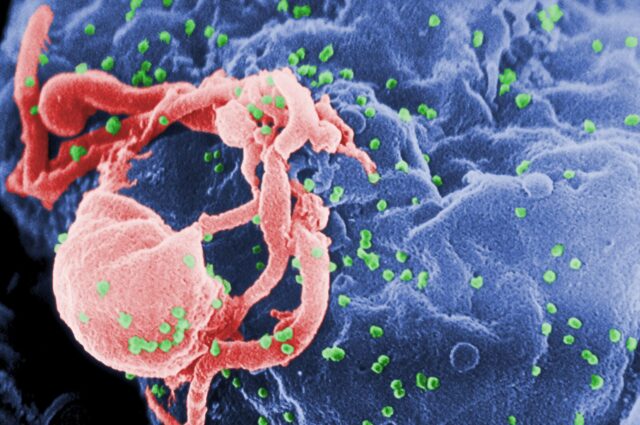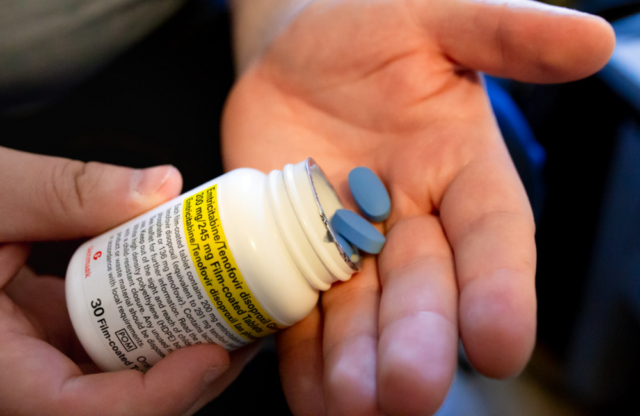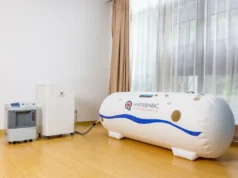
In the ongoing battle against HIV, the role of HIV programs and Pre-Exposure Prophylaxis (PrEP) as prevention is paramount in empowering communities to combat the spread of the virus. HIV programs encompass many initiatives focusing on prevention, testing, counseling, and treatment. These programs form the backbone of efforts to control transmission and improve the overall well-being of affected communities.
PrEP is a groundbreaking HIV prevention method that has revolutionized the landscape of HIV prevention. It involves using antiretroviral medications by individuals at high risk of HIV to reduce the likelihood of infection. By offering a proactive approach to preventing HIV, PrEP has demonstrated remarkable effectiveness in reducing the risk of transmission, providing renewed hope in the fight against the epidemic.

How Pre-Exposure Prophylaxis is Revolutionizing HIV Prevention
PrEP is a powerful tool in prevention methods, offering individuals at high risk of HIV an additional layer of protection. This preventive measure has emerged as a game-changer in reducing the risk of HIV transmission. By integrating PrEP into comprehensive prevention strategies, we can envision a future where it becomes preventable, and communities are empowered to take charge of their sexual health.
The benefits of PrEP extend beyond individual protection, as it contributes to curbing the overall transmission rates within communities. Its proactive nature, combined with other preventive measures, such as condom usage and regular testing, creates a robust defense against HIV. The transformative impact of PrEP marks a significant stride in our journey towards an HIV-free generation.
As we explore the power of PrEP and the significance of programs, we gain insights into how these preventive measures shape the landscape of HIV prevention. By understanding their role in empowering communities, we pave the way for a future with reduced transmission of HIV, improving the quality of life for those affected by the virus.
HIV Programs and Their Impact on Communities
HIV programs play a crucial role in making tangible differences in the lives of individuals and communities affected by the HIV epidemic. These programs encompass various initiatives aimed at prevention, testing, treatment, and support. One of the critical components of programs is HIV testing. Regular and accessible testing services are essential in identifying new cases and providing timely intervention.
Community outreach initiatives are another vital aspect of HIV programs. These initiatives aim to engage with at-risk populations and raise awareness about HIV prevention and treatment. Community-based organizations work tirelessly to reach vulnerable communities, offering support, education, and resources that empower individuals to make information-based decisions regarding their sexual health.
Moreover, HIV programs enhance access to healthcare services for at-risk populations. By ensuring that medical services, including PrEP, are available and affordable, programs break down barriers to preventive care. This inclusivity is particularly significant for populations facing economic, social, and geographic challenges, ensuring that no one is left behind in the fight against HIV.
As these programs are integrated into the fabric of communities, they provide medical support and foster a sense of empowerment and unity. By promoting education, eradicating stigma, and supporting those affected by HIV, these programs create a compassionate and understanding environment that helps individuals live their lives with dignity.

Addressing Stigma and Misconceptions about HIV Programs and PrEP
Stigma and misconceptions surrounding HIV and PrEP remain significant barriers to effectively preventing and managing the epidemic. HIV stigma creates fear, discrimination, and prejudice against those living with the virus, preventing individuals from seeking testing, treatment, or preventive measures like PrEP.
To combat the stigma, education and awareness campaigns on HIV prevention methods, including PrEP, are essential. These campaigns strive to provide accurate information, dispel myths, and challenge stigmatizing beliefs about HIV and those affected by it. By fostering a better understanding of the virus and its prevention, these campaigns empower individuals to make informed decisions and contribute to destigmatizing HIV.
Misconceptions about PrEP also hinder its uptake among at-risk individuals. Some may believe that PrEP is only for those engaged in high-risk behaviors or that it is a substitute for safe sex practices. Education on PrEP’s role as an additional preventive measure, not a replacement for other methods, helps individuals grasp its true significance in reducing HIV transmission risk.
Moreover, healthcare providers play a pivotal role in addressing stigma and misconceptions. Through open and non-judgmental communication, healthcare professionals can develop spaces for patients to discuss their concerns and receive accurate information about PrEP. By promoting a patient-centered approach, healthcare providers empower all individuals to make well-informed decisions about their sexual health and embrace preventive measures like PrEP.
The Role of Healthcare Providers in Promoting PrEP as Prevention
Healthcare providers are vital for promoting Pre-Exposure Prophylaxis (PrEP) as a powerful tool in HIV prevention. Their role extends beyond diagnosing and treating medical conditions; they also serve as educators and advocates for preventive measures that can significantly impact public health.
One of the critical responsibilities of healthcare providers is to educate their patients about PrEP and its benefits. By engaging in open and non-judgmental discussions, providers can assess patients’ risk factors for HIV and determine whether PrEP is a suitable option for them. This personalized approach helps patients understand the significance of reducing the risks of HIV transmission and gives them the power to take charge of their sexual health.
Prescribing guidelines for PrEP usage are crucial in ensuring its effectiveness. Healthcare providers must stay updated on the latest recommendations and protocols for PrEP administration, including dosage, adherence counseling, and regular follow-ups. By adhering to evidence-based practices, providers can optimize the preventive benefits of PrEP and enhance patient outcomes.
Additionally, healthcare providers are crucial in addressing potential concerns or misconceptions about PrEP. By providing accurate information and debunking myths, providers can alleviate fears and reservations that patients may have about using PrEP as a preventive measure. This open dialogue fosters trust between providers and patients and encourages proactive participation in HIV prevention efforts.

Advocating for Affordable and Widely Available Programs and PrEP Medication
Ensuring access to affordable and widely available HIV programs and Pre-Exposure Prophylaxis (PrEP) medication is essential in our collective effort to combat transmission. The affordability of PrEP medication is a significant factor that impacts its accessibility to individuals at risk of HIV. Advocacy for reduced drug costs and support for generic versions of PrEP are essential in making this life-saving medication accessible to a broader population.
Insurance coverage for preventive care services, including PrEP, is crucial in expanding access to HIV prevention. By advocating for comprehensive insurance policies that cover the costs of PrEP medication and related healthcare services, we remove financial barriers and ensure that individuals have equal opportunities to protect themselves from HIV transmission.
Furthermore, community-based organizations and advocacy groups are crucial in advocating for equitable access to HIV programs and PrEP. They engage with policymakers, healthcare providers, and the public to raise awareness about the importance of prevention and the need for accessible preventive measures. Their efforts lead to policy changes and funding support that can significantly improve access to PrEP for those in need.
By collaborating with pharmaceutical companies and healthcare providers, community-based organizations can establish support programs, such as co-pay assistance and patient navigation services, to assure individuals with the necessary resources and guidance to access PrEP medication and related preventive care.
Ensuring Equity in Access to Programs and Preventive Measures
Addressing racial disparities in access to healthcare services related to HIV prevention is crucial in our pursuit of an equitable and inclusive healthcare system. Communities disproportionately impacted by HIV, such as racial and ethnic minorities, often face additional challenges in accessing preventive measures like PrEP.
To close this gap, we must address all social determinants of health that are important to contribute to disparities in access to HIV programs and preventive measures. Poverty, lack of health insurance, limited access to healthcare facilities, and stigma can create barriers for individuals seeking preventative care. By addressing these underlying issues, we can promote more equitable access to prevention services.
Moreover, targeted outreach and education efforts are instrumental in reaching vulnerable populations and ensuring they know the available preventive measures. Community-based organizations, alongside healthcare providers, play a pivotal role in delivering culturally competent and accessible prevention services to at-risk communities.
Diversity and inclusion in research and healthcare policies are essential in advancing equitable access to HIV programs and preventive measures. By recognizing the unique needs and challenges different communities face, we can develop more tailored and effective prevention strategies.
As we strive to close the gap in access to programs and preventive measures, collaboration between healthcare providers, policymakers, community organizations, and affected communities is critical. Together, we can work towards a future where HIV prevention efforts are genuinely inclusive and leave no one behind. By addressing disparities and promoting equity, we take a significant step toward building a healthier and more resilient society for all.

Let’s Start Working Towards a Future without New Cases
In conclusion, the path to an HIV-free future lies in recognizing the pivotal roles played by HIV programs and Pre-Exposure Prophylaxis (PrEP) in fostering empowerment and combating the epidemic. By unleashing the potential of PrEP and dismantling stigma, we pave the way for a more inclusive approach to HIV prevention. Healthcare providers’ crucial role in educating patients and guiding PrEP usage enhances patient-centered care and ensures the medication’s effectiveness.
Expanding access to affordable HIV programs and PrEP medication is vital in making prevention efforts accessible to all. Through advocacy for insurance coverage and targeted community-based programs, we work towards equitable access to HIV prevention services, irrespective of financial constraints or social circumstances.
Addressing racial disparities alongside social determinants of health will contribute to closing the gaps in accessing programs and ensuring preventive measures get easy as a result. By prioritizing diversity, inclusion, and tailored interventions, we strive to create a healthcare system that is genuinely responsive to the needs of all communities.
Ultimately, the fight against HIV requires a collaborative effort between communities, healthcare providers, policymakers, and organizations. In joint work, we will be able to overcome the barriers that stand in the way of effective prevention and treatment. Let us continue to unite our efforts, advocate for change, and support those affected by HIV. By doing so, we can envision a future without new cases, where communities are empowered, and everyone can live free from the burden of HIV. Together, we can build a healthier, more compassionate world for all.









